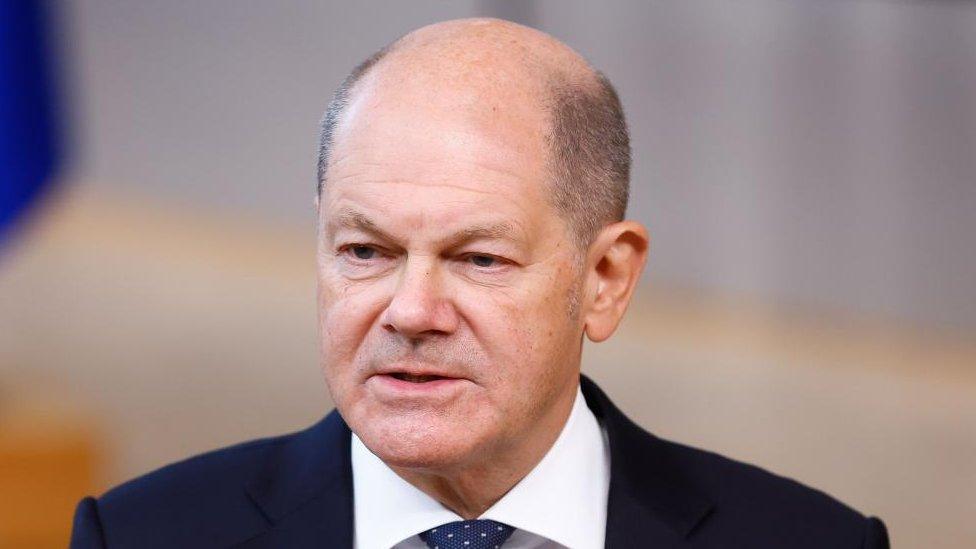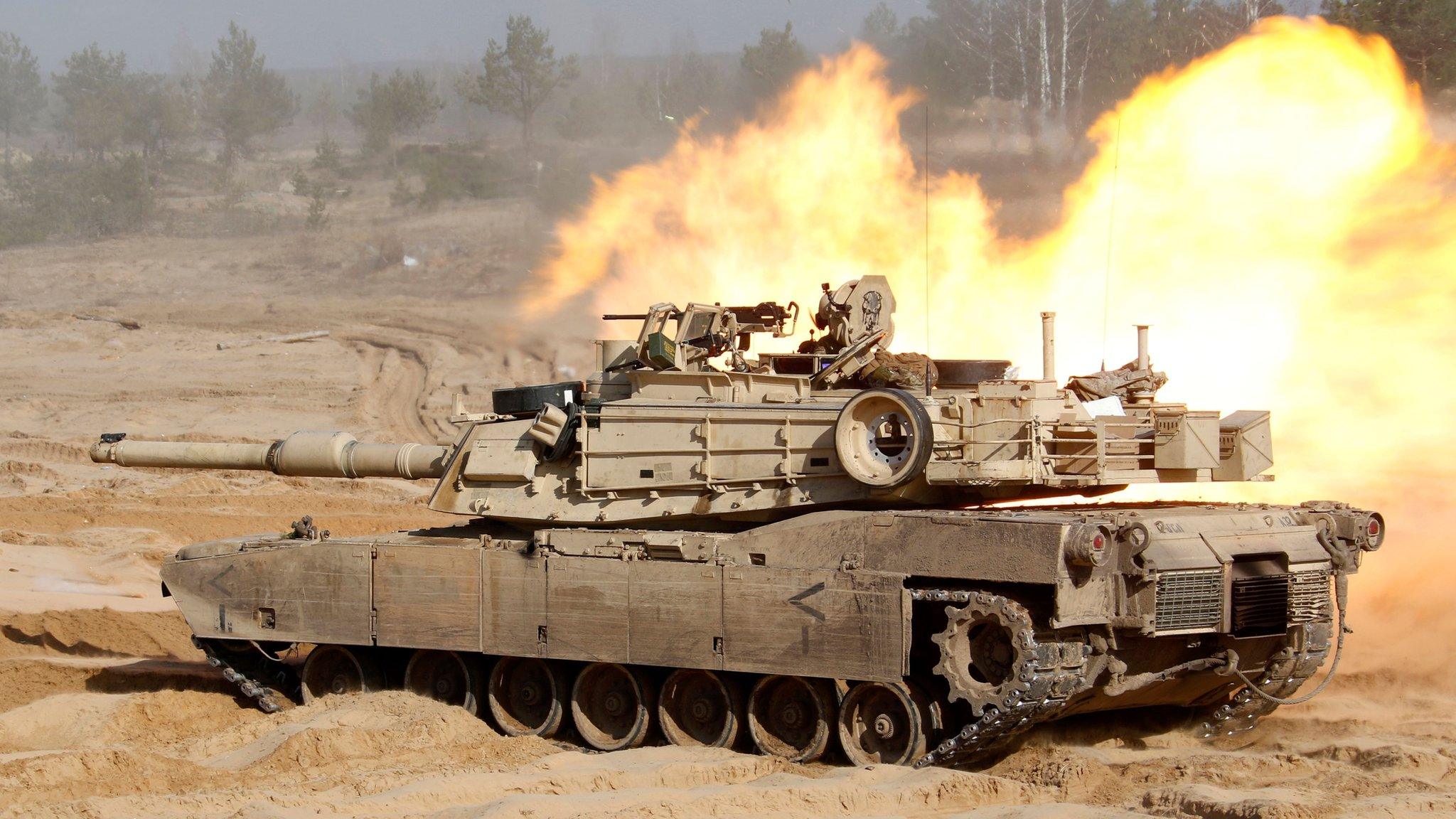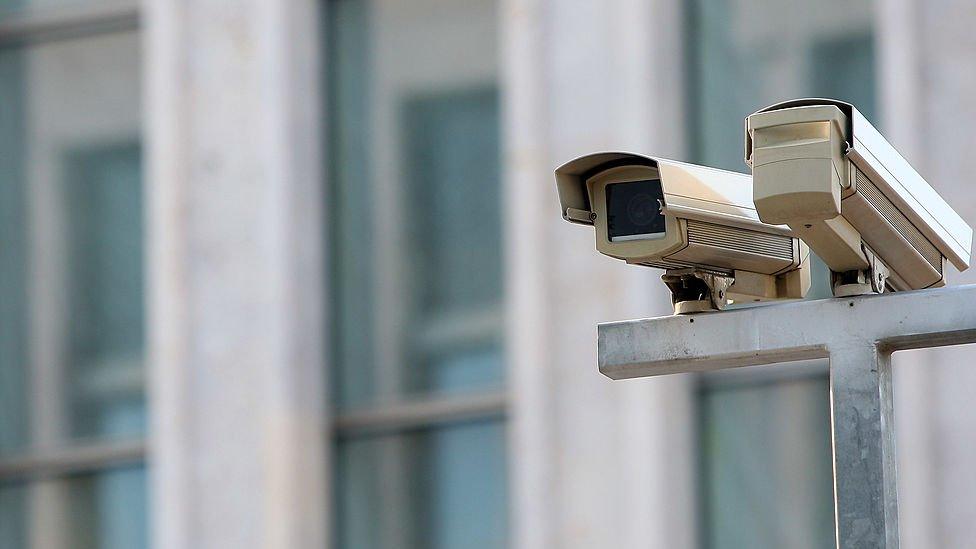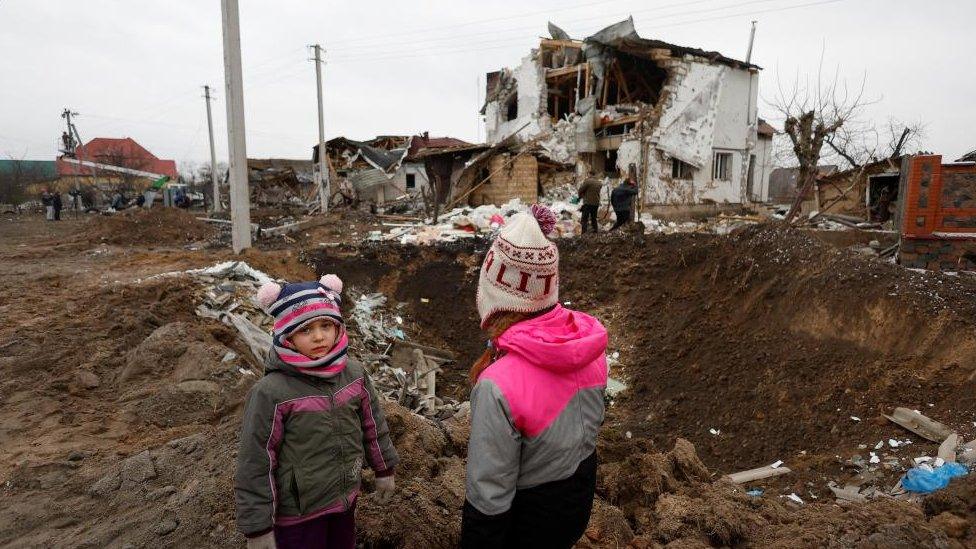German chancellor says he won't send fighter jets to Ukraine
- Published

The German chancellor has ruled out sending fighter jets to Ukraine, just days after committing to supplying tanks.
In an interview with a German newspaper, Olaf Scholz warned against a bidding war for weapons.
But Ukraine has asked allied nations to create a "fighter jet coalition" to bolster their capabilities.
The US said it would discuss the idea of supplying jets "very carefully" with Kyiv on Thursday.
In an interview with Tagesspiegel, Mr Scholz said his focus was on the delivery of German-made Leopard 2 tanks.
"The fact we've only just made a decision [on sending tanks] and the next debate is firing up in Germany, that just seems frivolous", he said.
On Wednesday Germany committed to supplying 14 of its Leopard 2 tanks to Ukraine, after weeks of pressure from allies.
Following Germany's commitment to send the tanks, the US said it would provide Ukraine with its M1 Abrams tanks.
Ukraine's deputy foreign minister, Andrii Melnyk, has called for the creation of a "fighter jet coalition" that would provide Ukraine with US F-16s and F-35s, Eurofighters, Tornados, French Rafales and Swedish Gripen jets.
Ukrainian presidential adviser Mykhailo Podolyak told Ukraine's Freedom Television Network they also needed missiles "to drastically reduce the Russian army's key weapon".
And Ukraine's president Volodymyr Zelensky echoed that in a daily video address where he said the country needed the US-made ATACMS missile, which has a range of 185 miles (297km).
He said the missiles would help Ukraine anticipate Russian attacks on urban areas and civilians.
Washington has so far refused to provide that weapon.
In the Tagesspiegel interview, Mr Scholz reiterated that Nato was not at war with Russia, "we will not allow such an escalation," he said.
He confirmed that he speaks regularly to Russia's president, Vladimir Putin, with the most recent call between the two in December 2022.
"We need to talk to each other," he said, but added that he was always clear that Russia's invasion of Ukraine was absolutely unacceptable and only the withdrawal of its troops would resolve the situation.
Related topics
- Published28 January 2023

- Published26 January 2023

- Published26 January 2023
